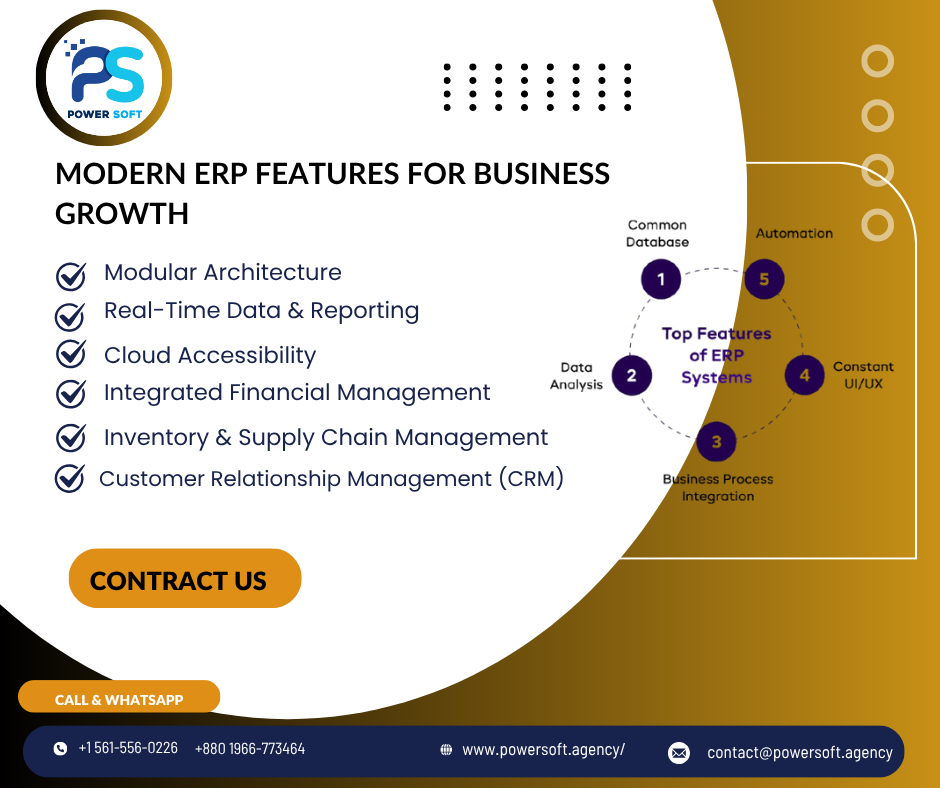
A Modern ERP System boosts efficiency, connects departments, streamlines workflows, and delivers real-time data for smarter business decisions.
But how do you choose the right one? Discover the top 10 must-have features of a modern ERP system that empower your business to scale, stay secure, and succeed in today’s competitive landscape.
1. Real-Time Data & Dashboards in a Modern ERP System

One of the standout features of a modern ERP system is its ability to deliver real-time data across all departments. Whether it’s finance, sales, inventory, or HR, having instant access to updated information allows teams to respond quickly to changes and make informed decisions.
Customizable dashboards are essential for visualizing this data in a meaningful way. Managers can view KPIs, track performance, and monitor workflows at a glance — all from a centralized interface. This visibility improves collaboration, enhances transparency, and eliminates the need for manual reporting.
In today’s fast-paced business environment, a modern ERP system equipped with real-time dashboards isn’t just a luxury — it’s a necessity for staying competitive and agile.
2. Cloud-Based Accessibility in a Modern ERP System
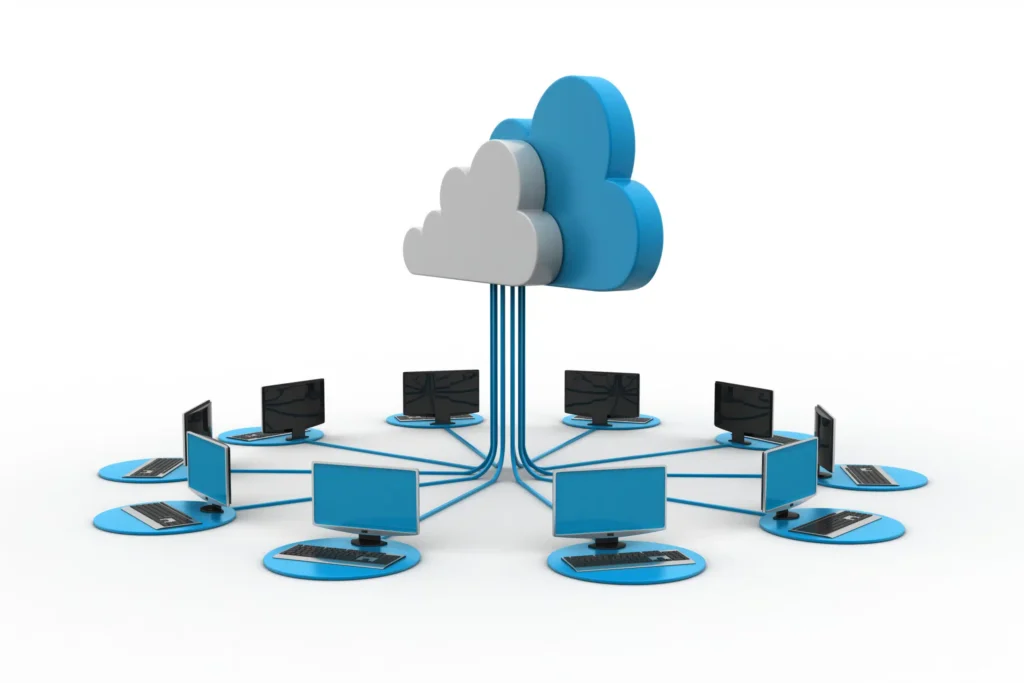
One of the most valuable features of a Modern ERP system is its ability to offer cloud-based accessibility. In today’s fast-moving business landscape, teams often work across multiple locations, time zones, or even from home. A cloud-enabled ERP system allows employees to securely access essential business data and tools from anywhere, using any internet-connected device.
This level of flexibility significantly boosts productivity and collaboration. Teams can update inventory, monitor sales, manage finances, or run reports in real time without being tied to a physical office. It also ensures that your business continues to operate smoothly even during unexpected disruptions, like system failures or natural disasters.
Additionally, a cloud-based Modern ERP system reduces the need for heavy on-premise infrastructure. Updates and maintenance are typically handled automatically by the service provider, allowing your IT team to focus on strategic goals instead of managing servers. As your business grows, the system can easily scale to meet increased demands—without the need for costly hardware upgrades.
In short, cloud-based accessibility transforms your ERP from a static tool into a dynamic business platform that adapts to modern work environments. It’s a crucial feature for companies that value mobility, real-time insights, and operational resilience.
3. Modular & Scalable Architecture in a Modern ERP System
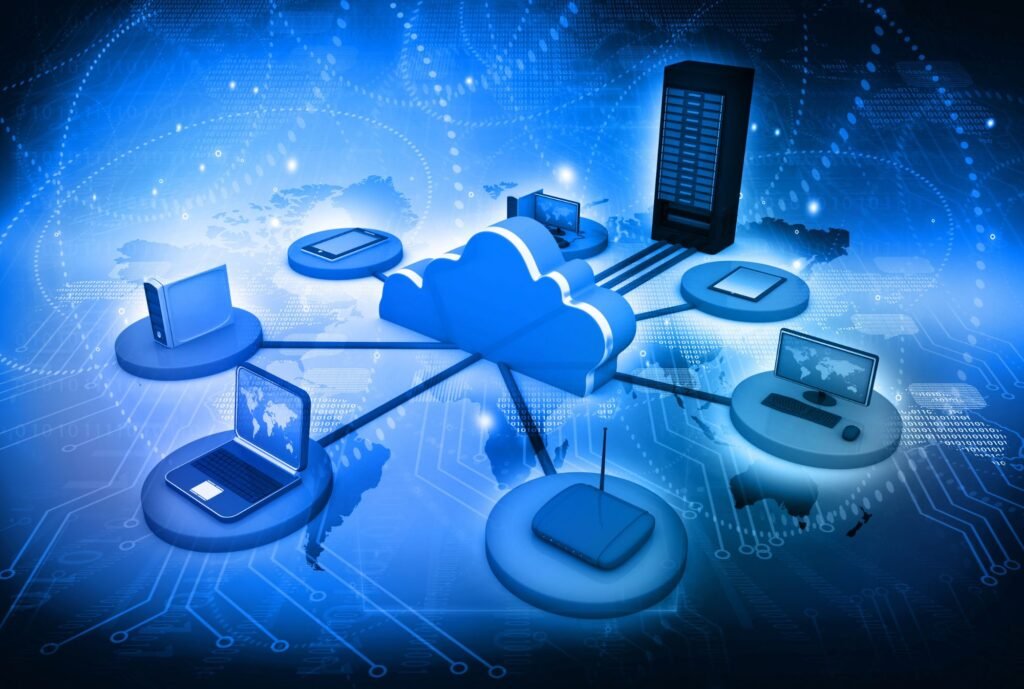
A critical advantage of a Modern ERP system is its modular and scalable architecture. As your business evolves, your ERP software must evolve with it. Whether you’re expanding your operations, entering new markets, or adding new departments, a modular system ensures you don’t outgrow your technology.
With a modular Modern ERP system, you can start with the core functionalities you need—such as finance or HR—and then gradually add other modules like inventory management, supply chain, CRM, or payroll. This approach eliminates the need for a complete system overhaul every time your business changes. It also helps you save costs by investing only in the features you currently require.
Scalability goes hand in hand with modularity. A modern ERP solution should handle increased data loads, user traffic, and business complexity without compromising speed or performance. Whether you’re a growing SME or a scaling enterprise, the system must accommodate your growth smoothly and efficiently.
In summary, a Modern ERP system with modular and scalable design provides the flexibility to adapt to your business needs—today and in the future. It’s a strategic investment that ensures long-term efficiency, adaptability, and success.
4. Strong Security & Compliance in a Modern ERP System

In today’s digital landscape, security is one of the most critical aspects of any business software. A Modern ERP system must go beyond basic protection to safeguard your company’s sensitive data from cyber threats, breaches, and unauthorized access.
One of the core security features to look for in a modern ERP is multi-factor authentication (MFA), which adds an extra layer of login protection by requiring more than just a password. This significantly reduces the chances of unauthorized access.
Role-based access control (RBAC) is another essential component. It ensures users can only access the data and functions relevant to their roles. This not only enhances internal security but also prevents accidental data leaks.
Additionally, data encryption at rest and in transit protects your information from being intercepted or stolen during communication between devices or systems.
Compliance is just as important as security. A Modern ERP system should help your business meet industry standards and legal requirements such as GDPR, HIPAA, or SOX by offering tools and features designed for regulatory alignment.
By choosing an ERP with strong security and compliance capabilities, you’re not only protecting your data but also building trust with your customers, partners, and stakeholders.
5. Seamless Integration with Third-Party Apps
In today’s interconnected digital environment, a Modern ERP system must offer seamless integration with the tools your team already uses. Without this capability, businesses risk falling into data silos, where valuable information is trapped in separate systems — reducing efficiency and increasing the chance of errors.
Modern ERP solutions should integrate effortlessly with popular third-party applications such as:
- Microsoft 365 for productivity and collaboration
- Google Workspace for cloud-based email, calendar, and documents
- Salesforce for customer relationship management
- E-commerce platforms like Shopify, Magento, or WooCommerce
- Payment gateways including Stripe, PayPal, or Razorpay
These integrations allow your ERP system to act as a unified hub for operations, helping teams access and update data in real-time across departments.
By choosing a Modern ERP system with strong third-party integration capabilities, your business can improve data flow, streamline workflows, and boost overall productivity — all while eliminating the need for manual data entry and reconciliation.
6. CRM Tools Integrated in a Modern ERP System
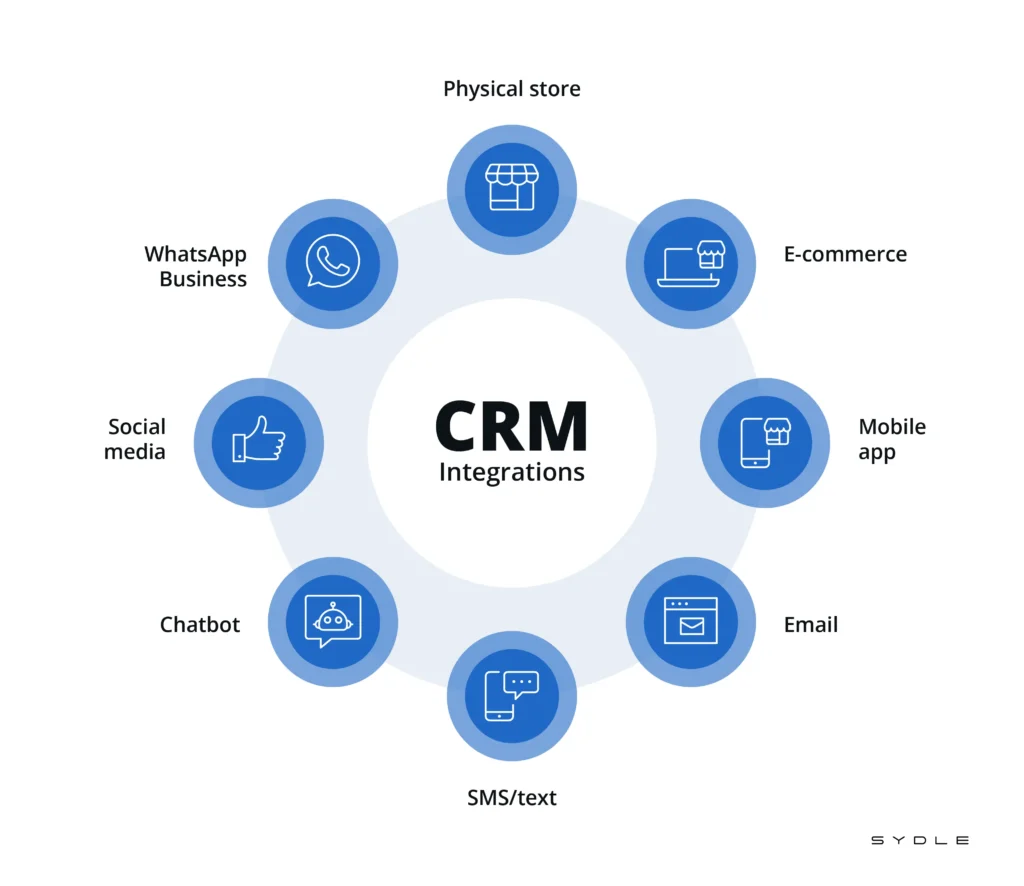
One of the most valuable features of a Modern ERP system is its built-in Customer Relationship Management (CRM) capabilities. Instead of relying on separate tools, having CRM integrated directly into your ERP helps your business centralize customer data, streamline interactions, and provide better service throughout the customer lifecycle.
An integrated CRM in a Modern ERP system enables you to:
- Track leads, prospects, and opportunities in real-time
- Manage customer accounts and histories in one place
- Automate follow-ups, reminders, and marketing campaigns
- Improve communication between sales, marketing, and support teams
- Personalize customer interactions based on data and past behavior
This integration not only enhances team collaboration but also leads to higher customer satisfaction and retention. With everything connected under one platform, businesses can deliver faster, smarter, and more consistent customer experiences — a critical edge in today’s competitive landscape.
By choosing a Modern ERP system with robust CRM tools, you’re not just optimizing internal operations; you’re building stronger, longer-lasting customer relationships that drive growth.
7. Financial Management & Analytics

A Modern ERP system must go beyond basic bookkeeping — it should provide comprehensive financial management and data-driven insights that help drive business decisions. From startups to enterprises, having a centralized view of your finances is essential for long-term success.
With built-in tools for budgeting, expense tracking, forecasting, and tax reporting, a modern ERP eliminates the need for separate finance software. This streamlines accounting operations and ensures compliance with local and global regulations.
More importantly, leading Modern ERP systems now integrate AI-powered analytics to help businesses identify trends, predict cash flow, and uncover areas where cost savings are possible. These intelligent insights empower financial teams to act proactively rather than reactively.
By choosing an ERP platform with advanced financial and analytical capabilities, businesses can gain complete control over their financial health and make smarter, faster decisions that fuel growth.
8. Mobile Compatibility

In today’s mobile-first world, a Modern ERP system must offer full mobile compatibility to keep your workforce connected, productive, and responsive—no matter where they are. Whether your team is working remotely, traveling for business, or operating across multiple locations, real-time access to business-critical data is essential.
Modern ERP platforms should include mobile apps or responsive web interfaces that allow users to view dashboards, track performance metrics, approve workflows, and communicate with team members—all from a smartphone or tablet. This level of flexibility ensures that decisions can be made on the go, without delays or bottlenecks.
Additionally, mobile-friendly ERP systems support push notifications, secure logins, and offline capabilities, ensuring constant accessibility without compromising on security. By enabling true mobility, a modern ERP empowers your teams to stay aligned and agile in a fast-paced business environment.
9. AI & Automation Capabilities in a Modern ERP System
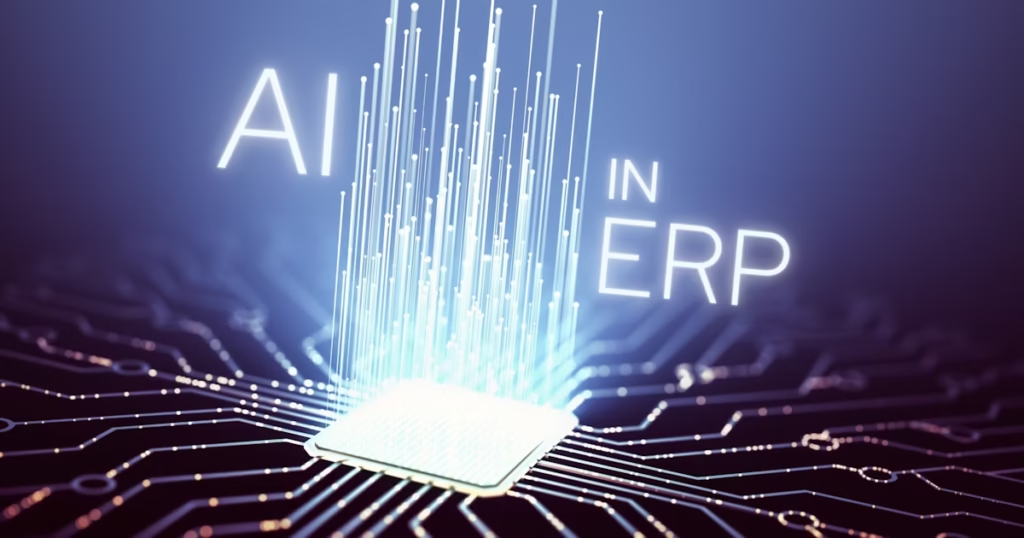
One of the most transformative features of a Modern ERP system is the integration of Artificial Intelligence (AI) and automation. These technologies are redefining how businesses operate by streamlining tasks, improving accuracy, and enabling smarter decision-making.
With AI-powered tools, companies can predict demand, automate repetitive workflows, and even perform predictive maintenance on equipment—reducing downtime and operational disruptions. AI also helps detect patterns and anomalies for fraud detection and risk mitigation, providing an extra layer of business intelligence.
Automation not only cuts down on manual data entry but also ensures consistency across processes like invoicing, payroll, inventory updates, and approvals. This boosts overall productivity and allows teams to focus on strategic tasks rather than administrative work.
By leveraging AI and automation, a modern ERP system empowers businesses to become more agile, data-driven, and competitive in a rapidly evolving market.
10. Ongoing Support & Customization
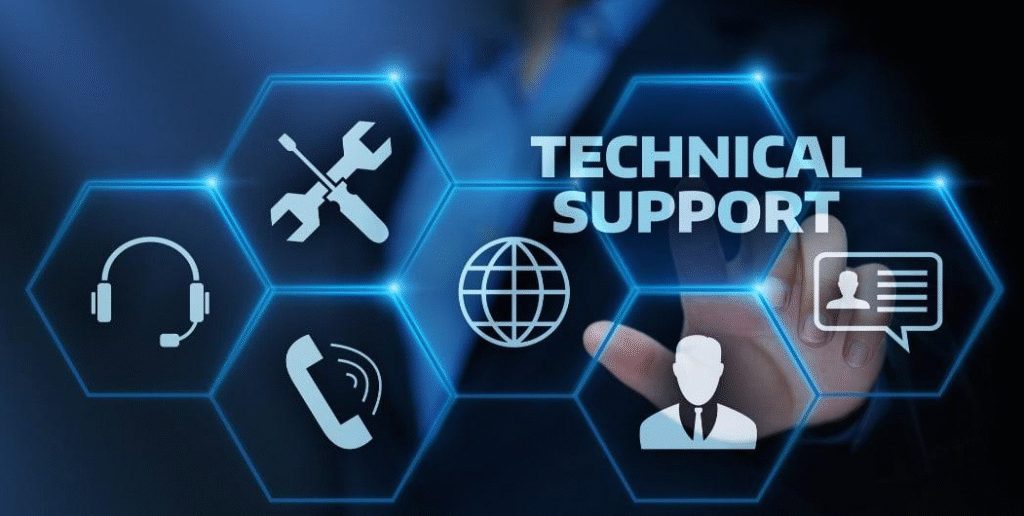
An effective Modern ERP system isn’t just about what it offers out of the box—it’s also about how well it can grow and adapt with your business. That’s why ongoing support and customization are essential features to look for.
The best ERP vendors provide continuous technical support, ensuring any issues are quickly resolved to minimize downtime. Beyond support, regular system updates keep your ERP equipped with the latest features, security patches, and industry best practices.
Equally important is custom module development. As your operations evolve, your ERP should be able to adapt with tailored functionalities that meet your unique business needs—whether it’s integrating a new department, adding advanced reporting, or modifying workflows.
By choosing a vendor committed to long-term support and customization, you ensure your modern ERP system stays aligned with your business strategy, maximizes ROI, and scales effectively as you grow.
Why Choose Power Soft for ERP Development?
At Power Soft, we specialize in building secure, scalable, and customized ERP systems tailored to your industry needs. From finance and supply chain to HR and CRM, we empower businesses with intuitive solutions that streamline operations and boost ROI.
✅ Over a decade of experience
✅ Robust cybersecurity integration
✅ Fully customizable modules
✅ Scalable cloud-based platforms
✅ Expert consultation and support
Ready to Build a Smarter ERP System?
Let us help you digitize and future-proof your operations.
📧 Email: contact@powersoft.agency
🌐 Website: www.powersoft.agency/services
📞 Call & WhatsApp 1: +1 561-556-0226
📞 Call & WhatsApp 2: +88 01966 773464